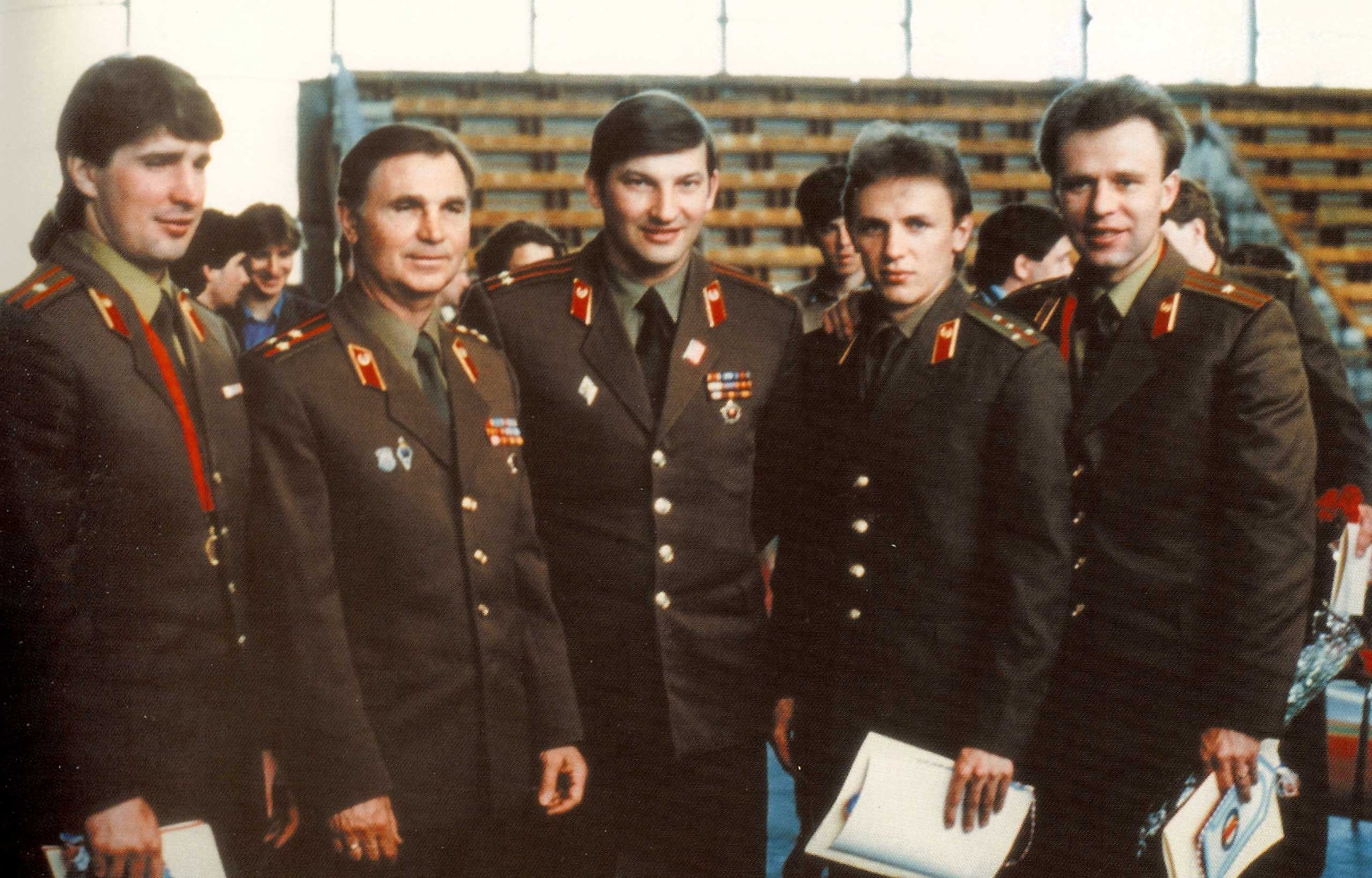
In America, ice hockey lags a distant fourth among professional team sports, far behind football, baseball and basketball. Men push a tiny puck across a skating rink, collide with one another and, all too rarely, score a goal. But even those who don’t know or don’t like hockey can appreciate the pure, complicated synergy of the game, especially as it was played by the Red Army team in its dominant decades, before the collapse of the Soviet Union. Gabe Polsky’s Red Army, focusing on defenseman Viacheslav “Slava” Fetisov, brims with male camaraderie: high spirits and some robust verbal sparring.
Most forms of filmmaking demand star quality, but none more than the documentary, in which an attractive personality can drive home the political or human message. Polsky found his star in Fetisov, part of the legendary Green Line of the U.S.S.R. ice hockey team. During his 13 seasons, the Red Army squad won seven World Championships (out of a possible 10) and two Olympic gold medals, losing only in 1980 to the U.S. team in the “Miracle on Ice” semifinal game. Defying the Soviet hierarchy, Fetisov left Russia for North America to play for the National Hockey League, spurring an exodus of other Soviet and European stars to the NHL. Many of his fellow Russians joined him on the Detroit Red Wings, which in 1997 and 1998 won the Stanley Cup.
Those are Fetisov’s statistics. The man is even more impressive: a dominant presence off the ice and in front of Polsky’s camera, whether declaring his political independence, misting up at the memory of his first coach or, when the mood strikes him, giving his director a middle-finger salute. So charismatic is Fetisov that this exuberant, affecting film portrait could escape the niche of documentaries and become a popular attraction on the order of Searching for Sugar Man. The film has similar heart, humor and unbelievable-but-true narrative twists.
In the NHL, star players often skate freely toward the goal, a one-man show. In Soviet hockey, “The man with the puck is the servant of the other skaters.” Their coaches stressed teamwork, as developed in a decade of junior-league training, until the intricate weaving of the Green Line skaters approached the choreography of the Bolshoi Ballet or the chess mastery of Garry Kasparov. (One NHL announcer calls them “the Soviet Symphony.”) The long years of excruciating practice forged a comradeship, in the best sense, of Fetisov and his mates. Surviving the 1980 Lake Placid humiliation, and weathering disagreements that seemed like betrayals, the Green Liners were a band of brothers. Some of them reunited with Fetisov in the NHL years later, after the fall of the Soviet Union.
Fetisov, who speaks excellent English from his many years in North America, is still a Russian at heart. He returned there, and at the urging of Vladimir Putin served as Minister of Sport from 2002 to 2008. Fetisov deflects some of Polsky’s questions by saying, “I’m a politician now.” As a Soviet skater, he was also a political and social force: he and his team lifted the U.S.S.R. at a time when the West was the best at everything but hockey. As one Russian commentator notes, “The story of hockey is the story of our country.”
Ice hockey is not exactly America’s story, and at the moment Russia is not the most popular foreign power. But this playful, poignant film presents a human story that transcends decades, borders and ideologies.
More Must-Reads from TIME
- Cybersecurity Experts Are Sounding the Alarm on DOGE
- Meet the 2025 Women of the Year
- The Harsh Truth About Disability Inclusion
- Why Do More Young Adults Have Cancer?
- Colman Domingo Leads With Radical Love
- How to Get Better at Doing Things Alone
- Michelle Zauner Stares Down the Darkness
Contact us at letters@time.com